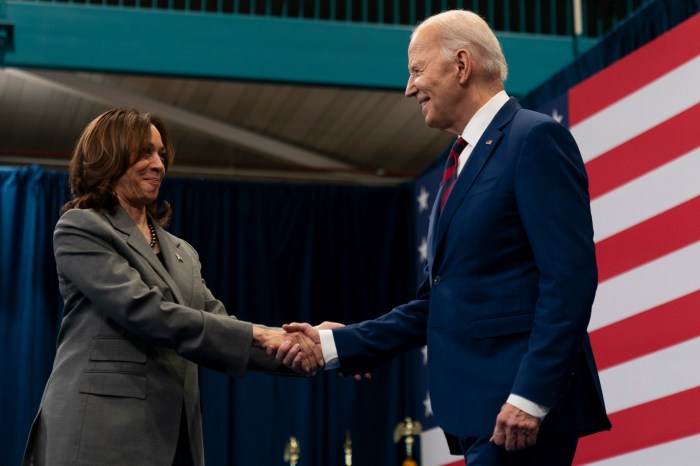BY PAUL SCHINDLER | In an impressive show of Democratic unity on the issue of marriage equality, on the same day that New Jersey Senate and Assembly leaders in Trenton announced reintroduction of a gay marriage bill, all seven of the state’s US House members from that party as well as its two US senators released a letter voicing their support.
In their letter, made public on January 9, the congressional Democrats argued that New Jersey’s civil union law –– enacted in 2006 in response to the State Supreme Court’s ruling that the Legislature must afford same-sex couples all the rights and benefits of marriage –– failed to do that.
As state legislative majorities press for passage, Chris Christie looks like roadblock
“Ample testimony before the New Jersey Senate Judiciary Committee two years ago demonstrated that the civil union law has not successfully provided equality to same-sex couples in New Jersey,” the letter stated. “Couples testified that hospitals still refuse visitation and medical-decision rights because they do not consider civil unions to be equal to marriage. Similarly, couples demonstrated that employers continue to refuse to grant equal benefits to civil union partners.”
At a Trenton press conference, Senate President Steve Sweeney and Assembly Speaker Sheila Oliver both pledged speedy action and predicted victory.
Regarding evidence that the civil union law was falling short, Oliver, in a written statement, said, “It sends a message that same-sex couples are not good enough to warrant equality. This is the same wrong message we heard from segregation laws. Separate treatment was wrong then. And separate treatment is wrong now.”
Republican Governor Chris Christie has repeatedly stated his opposition to marriage equality legislation, arguing that the civil union law is sufficient. Given the governor’s national profile and the possibility he may seek higher office down the road, it’s unlikely he would reconsider his position and buck anti-gay conservatives across the nation who currently wield significant influence in the GOP.
Former Democratic Governor Jon Corzine had pledged to sign a gay marriage bill, but in the final days of his administration in January 2010, movement was blocked by Sweeney’s unwillingness to support the legislation. He has since voiced strong regret for his inaction and this week said he expects the Senate to move by March.
Sweeney will be succeeded as majority leader by Loretta Weinberg, a Teaneck Democrat who has been the Legislature’s most vocal champion of marriage equality.
Assemblyman Reed Gusciora, a gay Democrat from Princeton, pointed out that Christie’s political stumping on behalf of Mitt Romney’s presidential campaign has taken him to Iowa and New Hampshire and that he’s also recently traveled to New York, Massachusetts, and Washington, DC –– all jurisdictions with marriage equality.
“And in none of these places, has he seen any diminishment of the institution of marriage other than perhaps when he is in the presence of Newt Gingrich,” Gusciora said, poking the former US House speaker for his three marriages and his affair with his current wife during his second marriage.
“The world has changed since the Legislature last debated a marriage equality bill in 2009,” said Steven Goldstein, the chairman of Garden State Equality (GSE), the state’s LGBT lobby. “Today, states with a combined population of more than 35 million people have marriage equality… The days are over when marriage equality was the third rail of American politics.”
With Republican Assemblywoman Mary Pat Angelini prepared to support the marriage equality bill as she did the last time it came up and GOP Senator Jennifer Beck having moved from opposition to support, Goldstein said the bill can now fairly be described as bipartisan in both legislative chambers. Angelini and Beck represent the Asbury Park area.
Asked how much confidence GSE has that Senate and Assembly leaders can deliver on their commitment, Goldstein responded, “Do things look good? Yes. But we don’t take anything for granted. We need every vote for passage.”
Democrats hold 24 of 40 seats in the Senate and 47 of 80 seats in the Assembly.
Having enough votes to override a Christie veto is likely another matter altogether. Noting that Vermont is the only state where the Legislature successfully overrode a governor’s marriage equality veto, Goldstein said, “We are realistic.”
GSE has worked constructively with Christie’s office on a number of major issues, and Goldstein gave the governor particularly high marks on his embrace of the state’s new bullying law. Still, he conceded that moving Christie at this point is not in the cards.
“He said he is going to veto it and we take him as his word,” Goldstein said. “We are not naïve. That’s not going to change.”
What GSE hopes for is that the governor will not stand in the way of GOP legislators joining their colleagues Beck and Angelini in supporting the measure.
Goldstein noted GSE’s partnership with Freedom to Marry and the Human Rights Campaign, two nationwide groups, in pushing the legislation in Trenton. He also pointed to Lambda Legal’s advocacy in front of the New Jersey Supreme Court.
Lambda has gone back to court, armed with the evidence the civil union law is failing to live up to the 2006 judicial mandate to deliver all the rights of marriage. The suit has not yet gone to trial, but Goldstein does not think Christie would demagogue a ruling in favor of marriage equality.
“Chris Christie is right of center, but he is not Rick Santorum,” he said. “I believe that Chris Christie’s most important issues are downsizing government and improving the economy.” Acknowledging the governor is not prepared to enhance the legal standing of same-sex couples, Goldstein added, “He is not obsessed with denying gay and lesbian couples their rights.”
In a written statement, Marc Solomon, Freedom to Marry’s national campaign director, said, “What New Jersey’s legislative leaders are telling us clearly today is that the Garden State values its gay and lesbian citizens fully, and does not accept treating same-sex couples and their families as second-class citizens, as it presently does with civil unions.”


































